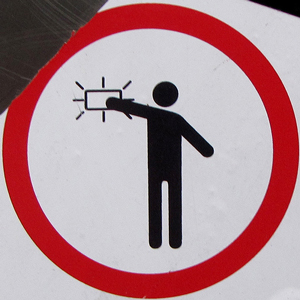
Source: STICK IT UP!, Leo Reynolds, Flickr
You have many ways to study vocabulary. You can make lists. You can make flash cards. You can make notes in the margins of books you are reading. You can give yourself quizzes and challenge yourself to use new words in your writing and in your conversations. All of these are good ideas; they will all help build your vocabulary. The best way to build your vocabulary, however, has not yet been mentioned. Do you know what it is?
Look back at the ideas: making lists, creating flash cards, writing notes, taking quizzes, using new words. What is the idea that is left out, the idea that many people consider the best way to build vocabulary?
It is reading. If you read widely and notice words as you read, you will build vocabulary even without using any of the ideas above. You need, of course, to read books and articles that are written for intelligent readers; your vocabulary cannot be improved beyond the vocabulary level used in your reading choices. Reading, however, is the best vocabulary builder because it is the most natural and the easiest strategy to practice regularly.

Source: Ideas challenge, Sudarshan2010, Wikimedia
Don’t ignore the other strategies. Making lists and especially making notes as you read will boost the vocabulary-building effect of reading considerably. Anything that helps you notice words will help. Read more. Notice more. These things are key.
It is also worth mentioning what may be obvious: It is more effective to study word groups than individual words. This means studying prefixes, suffixes, and especially word roots. Once you know that the root duct means “to lead,” you have a way to remember a whole family of words: viaduct, reduce, educate, induct, not to mention duct tape.
Knowing roots and affixes will help you notice words as your read. You can take guesses about them; for example, what does the word “educate” have to do with leading? Furthermore, you can learn something as you check to see if your guesses are correct.